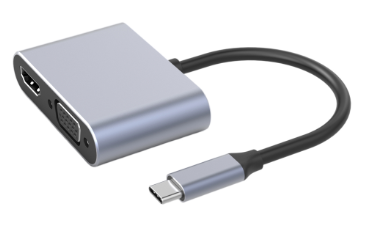In the ever-evolving realm of technology, the question of compatibility often arises, especially when it comes to USB hubs. As USB 3.0 gains prevalence, users frequently wonder if they can seamlessly integrate a USB 3.0 hub with a USB 2.0 port. This article delves into the nuances of compatibility, shedding light on the possibilities and considerations, with a focus on guidance from expert and high-quality USB hub manufacturers.

Understanding USB Generations:
USB 3.0, with its enhanced data transfer speeds and improved power delivery capabilities, represents a significant leap forward from its predecessor, USB 2.0. The key question that arises is whether a USB 3.0 hub can operate harmoniously when connected to a USB 2.0 port.
1. Compatibility Basics:
The good news is that USB 3.0 hubs are designed with backward compatibility in mind. This means that they can indeed be used with USB 2.0 ports. However, it's essential to recognize that the overall performance will be limited to the specifications of the slower USB 2.0 standard.
2. Data Transfer Speeds:
USB 3.0 boasts impressive data transfer speeds, making it an ideal choice for those dealing with large files or seeking faster data synchronization. When connected to a USB 2.0 port, the transfer speeds will be capped at the maximum rate supported by USB 2.0, providing a practical but reduced performance compared to USB 3.0.
3. Power Delivery Considerations:
Another aspect to consider is power delivery. USB 3.0 hubs often come with improved power capabilities, allowing for the efficient charging of devices. While the hub will still function when connected to a USB 2.0 port, the power delivery might not be as robust as when used with a USB 3.0 port.
4. Expert USB Hub Manufacturers' Insights:
Expert USB hub manufacturers understand the intricacies of compatibility and design their products to offer seamless integration across different USB generations. High-quality USB hub manufacturers take into account the varying specifications of USB ports and ensure their hubs deliver reliable performance regardless of the connected port.
5. Future-Proofing Your Setup:
Investing in a USB 3.0 hub, even if currently used with a USB 2.0 port, can be a strategic move for future-proofing your setup. As more devices transition to USB 3.0 and beyond, having a hub that supports the latest standards ensures that your connectivity needs are met in the long run.
Conclusion:
In the dynamic landscape of USB technology, the question of using a USB 3.0 hub with a USB 2.0 port underscores the importance of adaptability and backward compatibility. With insights from expert USB hub manufacturers and high-quality USB hub manufacturers, users can confidently explore the possibilities, knowing that their devices can seamlessly communicate across different USB generations. Whether you're optimizing your current setup or planning for future advancements, a well-designed USB 3.0 hub can bridge the gap between past and present, offering a versatile and reliable solution for your connectivity needs.



